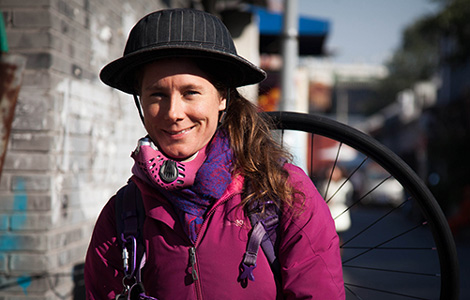Minister seeks bigger UN role in cybersecurity
Updated: 2013-11-07 00:23
By CHEN JIA in Stanford, California, and LI XIAOKUN in Beijing (China Daily)
|
|||||||||||
|
|
|
Video by Zhang Qidong/China Daily.Clickto watch on Youtube |
It is time to discuss international rules of conduct and to expand cooperation between countries to protect cybersecurity, a Chinese official said on Tuesday.
Cai Mingzhao, minister of the State Council Information Office, said the United Nations should play a bigger role in leading such efforts.
"We should, step by step, create a fair and transparent mechanism for the governance of cyberspace," Cai said in his keynote address at the EastWest Institute's Worldwide Cyberspace Cooperation Summit in Stanford, California.
The conference at Stanford University drew senior officials, academics and corporate leaders from more than 40 countries and regions. The summit was the fourth annual gathering sponsored in part by the EastWest Institute, a global security nonprofit organization.
Cai said cybercrime has been a major and growing problem in China, where there are more than 600 million Internet users.
Internet-based information technology businesses have become a pillar of the Chinese economy, accounting for 10 percent of gross domestic product.
But Cai said more than 80 percent of Chinese Internet users have fallen victim to cyberattacks, with economic losses running to tens of billions of dollars a year.
Countries need to show respect for national sovereignty over cyberspace and to build a robust legal system, he said.
"We are ready to expand our cooperation with other countries and relevant international organizations on the basis of equality and mutual benefit," he said.
However, US State Department cyberissues coordinator Christopher Painter said it is not necessary for the UN to play a bigger role.
"I don't think we need a new global instrument for all these different issues,'' he said, adding that adopting worldwide rules would take five to 10 years "and you end up with something that's not as strong as what we have now".
Microsoft Corp Vice-President Scott Charney urged the United States to first disclose far more about the information it collects and what happens to this data.
Companies and governments need to be more transparent for trust to be restored, he told the conference.
Hoover Institution professor Abe Sofaer, a former State Department legal adviser, said the US should follow the same pattern it did with biological weapons, where it abandoned resistance to international treaties when it became clear there was no other way to deal with the problem.
Tao Wenzhao, a senior researcher on US studies at the Chinese Academy of Social Sciences, said that in the past the US drew up its own rules on Internet security under the guise of anti-terrorism efforts, "monitoring any country that Washington wants to monitor, including its allies".
"It is time to end the unreasonable rules that the US places on the whole world and let the UN guide efforts to protect Internet security, especially when this issue is influencing not only every country's national interests but also ordinary people's privacy," he said.
Tao said the process would take several years but would represent a big step forward for the world.
In a report on the conference on Wednesday, Reuters said, "Revelations about the scale of US spying on the Internet have badly damaged the country's negotiating power in international talks on cyberspace regulation and law enforcement."
The report added, "Disclosures by former National Security Agency contractor Edward Snowden about the vast scale of the intelligence agency's data collection also are undermining US efforts to maintain the Internet as an entity loosely governed by a mix of national, private and nonprofit forces."
On Tuesday, Cai made special note of Beijing's cooperation with Washington. "The US and China are Internet giants. We share many common interests, and there is enormous scope for cooperation," he said.
Painter also said in his speech that a US-China joint cybersecurity working group, announced in April, has met once and is moving forward in cooperating against third-party threats.
Joe Sullivan, chief security officer of Facebook, said Cai impressed him with his "willingness to be here to have a dialogue".
Sue Dark, chief executive officer of Dallas-based DeepNines Technologies, a leader in network security, said, "I would love to see an outcome from this event where we have more alignment internationally."
Contact the writers at chenjia@chinadailyusa.com and lixiaokun@chinadaily.com.cn
Reuters and AP contributed to this story.
Related Stories
Security in cyberspace 'still major problem' 2013-07-10 00:34
Snowden case vindicates need for Web security rule 2013-07-01 19:42
Beijing urges US to end tech ban 2013-03-29 00:21
China seeks greater cybercooperation 2013-03-22 03:59
Cybersecurity bill dead after 2nd US Senate rebuff 2012-11-15 11:27
Obama takes part in cyberattack exercise 2012-06-06 09:13
Today's Top News
China's east still the top draw for foreigners
Huawei has eye on 5G
Li: China to modernize farms
Plenum being chance for urbanization
Bigger role sought in cybersecurity
EU strives for banking union amid opposition
PE, VC investors see big returns in M&As
China reforms eye more innovative bases
Hot Topics
Lunar probe , China growth forecasts, Emission rules get tougher, China seen through 'colored lens', International board,
Editor's Picks

|

|

|

|

|

|





